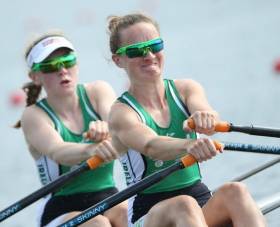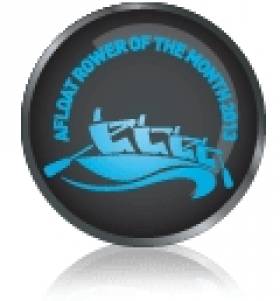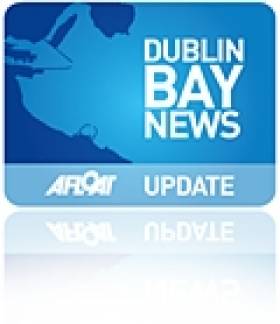Displaying items by tag: August
Cremen and Casey are Rowers of the Month
#Rowing: The Afloat Rowers of the Month for August are Margaret Cremen and Aoife Casey. The Ireland double finished seventh at the World Rowing Junior Championships. The Lee/Skibbereen duo reached the semi-finals in Trakai, Lithuania, but while they could not make the top six they were impressive winners of the B Final, where France tested them. Amongst the countries which did not reach the last 12 were Australia, New Zealand, the United States and China. Twenty-eight countries competed in this discipline.
Cremen and Casey had taken a silver medal at the European Junior Championships in Germany in May. It was another highlight of an exceptional season. Ireland underage crews have been part of the general rise: so far they have taken two medals at the World Under-23 Championships and five at the Coupe de la Jeunesse, a European junior tournament.
Rower of the Month awards: The judging panel is made up of Liam Gorman, rowing correspondent of The Irish Times, and David O'Brien, editor of Afloat magazine. Monthly awards for achievements during the year will appear on afloat.ie. Keep a monthly eye on progress and watch our 2017 champions list grow.
Ireland Junior Quadruple Are Afloat Rowers of the Month For August
#Rowers of the Month: The Afloat Rowers of the Month for August are the Ireland junior quadruple scull which won two gold medals at the Coupe de la Jeunesse in Szeged in Hungary. In early September, the senior team would make their mark at the World Championships, but in August it was the juniors which came away with a five-medal haul. The junior women’s double of Aoife Casey and Emily Hegarty took silver on Saturday and Sunday and single sculler Dervla Forde took bronze on the Sunday. But the most successful crew was the junior men’s quadruple of Colm Hennessy, Eoghan Whittle, Patrick Munnelly and Andrew Goff. They had also taken gold at the 2014 Coupe.
Rower of the Month awards: The judging panel is made up of Liam Gorman, rowing correspondent of The Irish Times and David O'Brien, Editor of Afloat magazine. Monthly awards for achievements during the year will appear on afloat.ie and the overall national award will be presented to the person or crew who, in the judges' opinion, achieved the most notable results in, or made the most significant contribution to rowing during 2015. Keep a monthly eye on progress and watch our 2015 champions list grow.
Kennedy and Dukarska are Afloat Rowers of the Month for August
#ROWING: The Afloat Rowers of the Month for August are Leonora Kennedy and Monika Dukarska. The Enniskillen woman, who had rowed and won medals with Britain, and her Killorglin teammate only began to work together earlier this summer, yet they formed a women’s double which finished a creditable 10th at the World Rowing Championships in Chungju in Korea. As preparations for the new season begin, this crew gives hope that Ireland rowing may begin to gather momentum again on the world stage.
Rower of the Month awards: The judging panel is made up of Liam Gorman, rowing correspondent of The Irish Times and David O'Brien, Editor of Afloat magazine. Monthly awards for achievements during the year will appear on afloat.ie and the overall national award will be presented to the person or crew who, in the judges' opinion, achieved the most notable results in, or made the most significant contribution to rowing during 2013. Keep a monthly eye on progress and watch our 2013 champions list grow.
Dun Laoghaire Events in August
Dun Laoghaire will play host to two new and exciting events this coming August.
The first annual Dublin Bay Taste & Music Fest takes place at the Peoples' Park from 26-28 August.
Pitched as a 'back to basics' celebration of Ireland's culinary heritage, the weekend will feature a 'boulevard' of chefs doing live demonstrations using the finest of local ingredients - as well as guest chefs from San Francisco providing the best of US west coast cooking.
Earlier in the month, on 1 August the inaugural DLR Bay 10k road race kicks off near Dun Laoghaire DART station.
The runners will follow a route that takes in Seapoint, Monkstown, Sallynoggin, Glenageary, Sandycove and Glasthule.
For more details visit www.dlrbay10k.ie.


























































